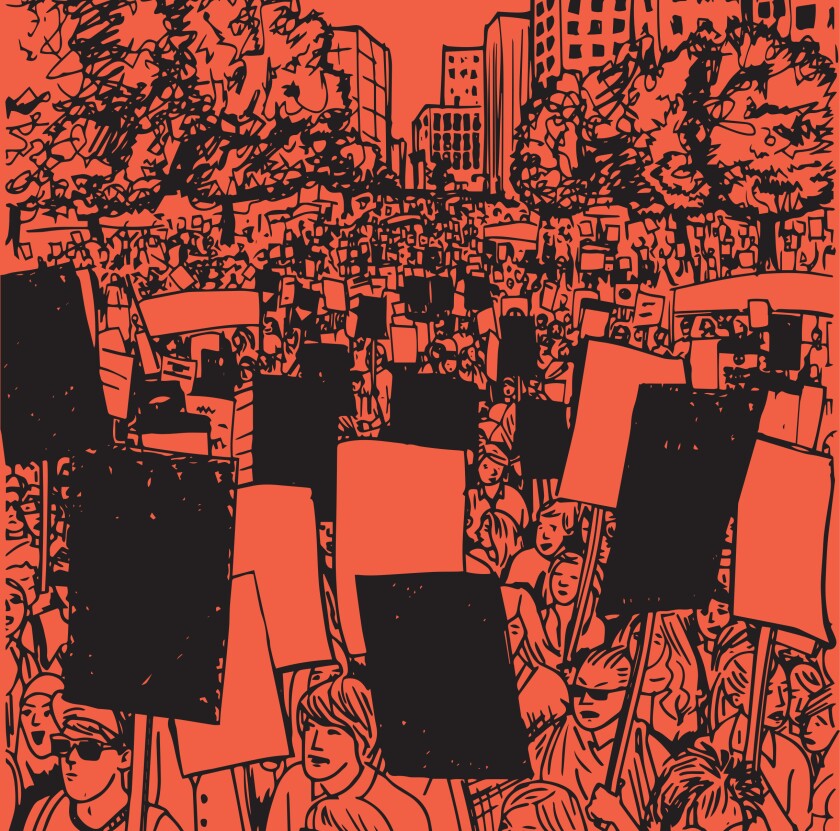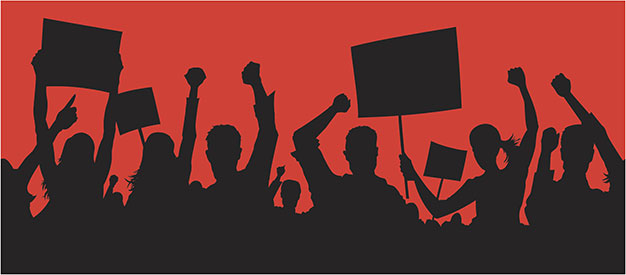Student Activism Resources

Student Affairs Statement on Student Protest and Activism
The CU Denver Division of Student Affairs understands how important student activism is for growth—personally, academically, and as leaders on campus. When you engage in activism, you're not just standing up for what you believe in; you're also putting into practice what you've learned in class and your activities outside of school. It's a way to make your voice heard and express yourself freely.
When you organize demonstrations, you're not only making a statement, but you're also developing crucial skills like diplomacy, responsibility, and communication. This kind of activism is right in line with CU Denver's vision for 2030: learning by doing and making an impact on our community, whether it's here on campus or around the world.
CU Denver is deeply connected to our local, regional, and global communities, and our focus on hands-on learning and real-world problem-solving is making a real difference for our students, our partners, and beyond.
If you're thinking about organizing a demonstration—even if it's against something the University has decided—we're here to help. Our Student Affairs team can give you guidance on University policies, help you understand how the University works, and even set up meetings to talk about your concerns. We're open to your ideas on how to make our campus better, and we can provide resources and support for your activism efforts.
Civility and Civil Discourse
CU Denver recognizes that our student body comes from all over the world with differences in economic, political, social, and other backgrounds. We will embrace the factors that may cause both human similarities and differences. Some of the factors that cause human differences are age, beliefs, ethnicity, gender, gender identity, race, national origin, physical ability or attributes, religion, sexual orientation, social class, values, and a host of others.
CU Denver recognizes our University as “one body” where every student is a human being and will be treated with the utmost respect and dignity regardless of our differences.
Why is it important to understand Civility and Civil Discourse?
Civility and Civil Discourse is more than just saying that you are committed, support, and embrace varying viewpoints. It means that you:
- Respect, appreciate, and understand the varying characteristics of individuals.
- Recognize that everyone is unique and that no one person is representative of an entire group of people.
- Will create a warm, welcoming, and hospitable atmosphere for those who are in some way different from the majority group.
- Value and demand respectful actions to honor cultural traditions and will address the emerging viewpoints and needs of under-represented groups of students.
What are the benefits of supporting Civility and Civil Discourse?
- Helps students develop the skills they need to communicate respectfully with their peers and reduce unconscious bias.
- Helps stop bullying on campus and other negative activities.
- Help students understand cultural differences and their responsibilities under the student handbook and the law.
- Helps students understand civility and effective dialogue.
- Teaches students strategies for safely practicing bystander intervention.
- Creates an atmosphere of inclusion and respect that leads to high morale and creativity.
- Improves student retention by teaching students how to create an inclusive atmosphere free of micro-aggressions, stereotypes, discrimination, etc.
In a world with rapidly changing demographics, students need to understand civility and civil discourse. This understanding will better prepare students for the work environment after graduation. It will also aid them in learning how to navigate difficult conversations and embrace differences for the betterment of their community.
Student Activism Resources
Campus protests have been a part of the higher education landscape for many years and are part of a process for students to voice their concerns, address needs and advocate for specific things on campus and beyond. Protests represent one piece of organizing around change on a college campus and while the most visible, often is the culmination of many hours of work for student organizers.
Whether you’re contemplating participating in a demonstration or well-versed in protest experiences, we want to provide some helpful tools to help make the most of your experience. Below is a list of resources for you to use for demonstration planning/participation on and off campus.
